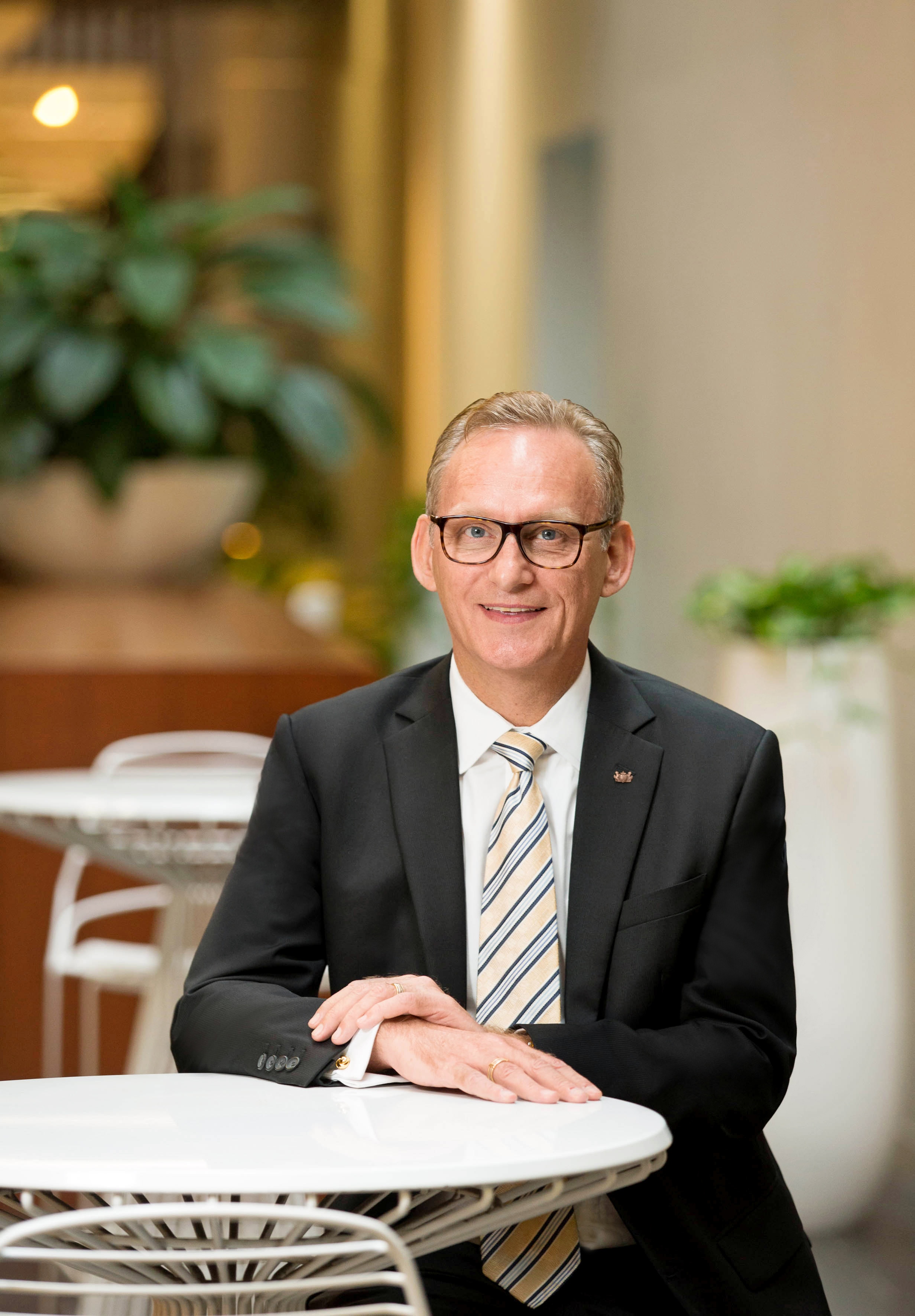In order to survive in the highly competitive hospitality sector, one must not only understand the importance of product differentiation but also learn how to provide the best service quality and assemble a team of resilient staff. Kenneth Rogers, Regional General Manager for The Ascott Limited in Indonesia and Australia, reveals what it is like to run upscale serviced residence units in two different countries.
“The best thing about working in the hospitality industry lies in its diversity and spontaneity. You never know what will occur next with different guest and staff interactions,” says Kenneth Rogers.
The General Manager kicked off his career in the hospitality industry by working in a hotel in Greece back in the 80s. He was travelling across Europe then and that experience ultimately inspired him to switch his career gears from engineering to hospitality. Later in his career, he found himself managing hotels across the world, including in China, Hong Kong, Taiwan and Australia.
His relationship with The Ascott Limited did not begin until 2006 when he was appointed Country General Manager for South Korea. Two years later he was internally transferred to manage Indonesia and in 2013 he was asked to simultaneously take charge of the serviced residence units in Australia.
Rogers’ daily routine as a General Manager may appear typical, yet he reckons there is always something new to expect when managing luxury residences in two different countries. He wakes up at six in the morning – due to the four-hour time difference between Australia and Indonesia – and starts his day communicating with his Australian team in Melbourne before moving on to his Indonesian team in Jakarta.
During this time, Rogers and his team in Australia and Indonesia normally discuss the progress made by the properties in both countries respectively, particularly when it comes to their business, staff members and overall guest satisfaction. He prefers to keep the communications with his key team members straight yet effective, thus avoiding having too many formal meetings. This would hopefully keep his staff engaged and motivated.
Rogers concedes that flexibility is an important factor for anyone who wishes to succeed in this industry. Staff must adapt to the long working hours while also prioritising guests’ needs at all costs. “You need to sacrifice some personal time in order to be successful in the hospitality industry,” he reveals.
The dynamic and ever-changing hospitality landscape in Indonesia and Australia from time to time make his work especially challenging yet interesting.
While Rogers thinks that they are generally different, both countries’ hospitality sectors seem to share a similarity when it comes down to the purpose of boosting economy.
And thanks to the fast-growing nature of the travel sector, he finds that the hospitality sector in the two countries is forced to come up with new strategies that can set themselves apart from the vast competition.
The hospitality industry in Australia, for one, is still undergoing a massive construction project in which more than 8,000 hotel rooms are being built, while a total of 30,000 accommodations are projected to emerge in the coming years. The construction boom, which will last for at least another year, is due to the exceptionally high tourism spending in the country, predicted to reach A$167 billion by 2025. This year alone, Australia will see a new wave of hotels sprawling across Sydney, Melbourne, Brisbane, Adelaide, Perth and Canberra.
On a similar note, the Indonesian government hopes to attract 20 million foreign tourists annually by 2019. The plan accordingly encouraged property owners and investors to build more hotels and resorts, with Jakarta and Bali remaining as the top places that lead the local hospitality sector.
Last year, Indonesia Hotel Watch revealed the local hospitality landscape has been significantly defined by Bali and Jakarta for the past five years. The survey, led by HVS Singapore, recorded that both Bali and Jakarta are home to around 63 percent of the overall branded supply and 85 percent of Indonesia’s luxury supply collectively. Bali, for one, is responsible for attracting about 40 percent of international visitors to the archipelago, while the capital city is highlighted for having the highest number of rooms in the luxury segment in Indonesia.
Rogers believes that keeping up with such trends is essential for understanding the market in both countries, which shall help managers and their teams decide their next move to improve the residence, such as how they can live up to the guests’ expectations and how they can upgrade their stay experience.
As the market turns increasingly competitive, new guest opportunities arise. Rogers believes that preserving ‘the spirit of guest service’ is the universal key to running a hospitality business successfully.
Focusing on guests, who are at the heart of the hospitality industry, gives them the chance to be ‘an advocate of your brand and property’.
This means allowing guests to openly express their demands and concerns which in return would help residence’s team to offer the best service quality. A good way to understand guests’ expectations according to Rogers is to listen to their complaints. Once this part is accomplished, then you can start differentiating yourself and keep the business alive.
For The Ascott Limited itself, differentiation is shown by having serviced apartments. Rogers adds: “Competition is tough and home grown brands are coming up and some of these have carved niches in the market and are very successful. We like to differentiate ourselves as we have serviced apartments and can appeal to the mid- to long-stay guest.”
For more information on The Ascott Limited please visit www.the-ascott.com/en/ascottlimited/index.html.




